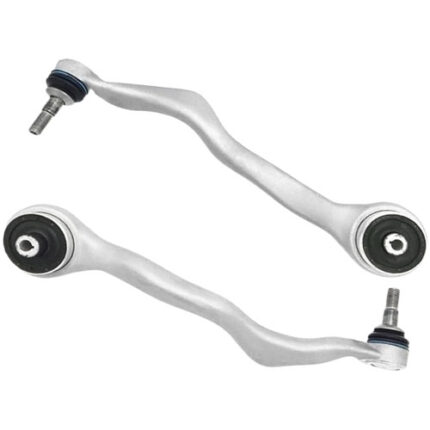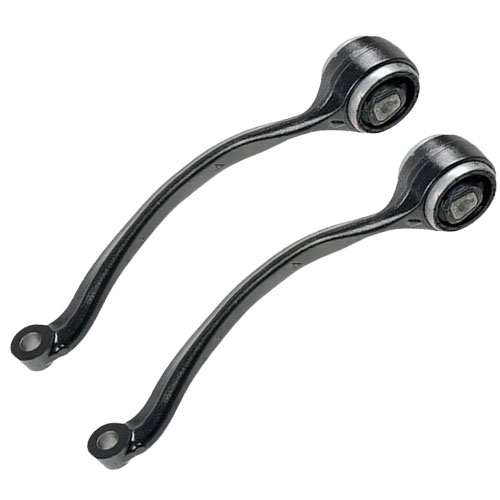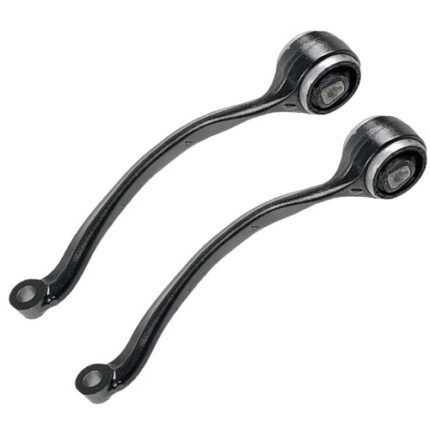Get BMW E84 X1 sDrive28i N20 2.0L Front Suspension Control Arm LH 31126768983 In kenya
The Front Control Suspension Arm LH (Left-Hand Side) is a critical component of a vehicle’s suspension system. It is part of the setup that helps connect the wheel assembly to the car’s chassis, allowing for smooth and controlled movement as the vehicle moves over various surfaces. The left-hand side (LH) refers to the specific positioning of the control arm on the vehicle, generally located on the driver’s side of a left-hand-drive vehicle. Understanding the role, functionality, benefits, and maintenance of this component is crucial for vehicle owners, mechanics, and anyone involved in automotive repair or vehicle safety.
1. What is the Front Control Suspension Arm LH?
The Front Control Suspension Arm LH is a robust, metal part that forms part of the suspension system in vehicles. It connects the vehicle’s body (or chassis) to the front wheel assembly. Most modern vehicles use an independent suspension system, which means the wheels on each side of the vehicle move independently, with each having its own control arm. The control arm allows the wheel to move vertically while ensuring it stays aligned with the car’s body and frame.
There are typically two control arms: an upper and a lower one. The Front Control Suspension Arm LH refers to the lower control arm on the left-hand side. This is the part that absorbs the road’s shock by allowing the wheels to move up and down when they encounter bumps, dips, or other irregularities.
2. Key Functions of the Front Control Suspension Arm LH
The Front Control Suspension Arm LH plays an essential role in ensuring the vehicle’s suspension system operates smoothly. Here are the primary functions:
a) Maintaining Wheel Alignment
The primary function of the control arm is to help maintain the alignment of the front wheels. It ensures that the wheels remain in the correct position relative to the vehicle’s body, allowing the vehicle to drive straight and handle properly. Proper alignment is vital for safe driving, as it ensures consistent tire wear and precise steering.
b) Allowing Vertical Movement of the Wheel
The control arm permits the wheel to move vertically, which is essential for absorbing shocks. As the vehicle drives over uneven surfaces such as potholes or speed bumps, the control arm allows the wheel to move upward or downward. This movement reduces the impact of rough roads on the cabin and improves ride comfort.
c) Supporting Steering and Handling
The control arm works in conjunction with the steering mechanism to enable smooth handling. As the driver steers the vehicle, the control arm helps translate the steering input into wheel movement, allowing the car to turn and respond to directional changes. Without the control arm, the vehicle would struggle to maintain proper steering dynamics, especially during sharp turns.
d) Reducing Strain on Other Suspension Parts
By controlling the motion of the wheel and preventing misalignment, the control arm reduces the strain placed on other suspension components, such as shock absorbers, struts, and stabilizer bars. This prolongs the life of these parts and helps the entire suspension system work more efficiently.
3. Benefits of a Well-Functioning Front Control Suspension Arm LH
Having a properly functioning Front Control Suspension Arm LH offers several benefits to both the vehicle and the driver. These benefits directly impact ride quality, vehicle handling, and overall safety:
a) Improved Handling and Stability
The control arm ensures that the front wheels remain in the correct position during turns, acceleration, and braking. This helps improve the handling and overall stability of the vehicle. A vehicle with a good control arm will respond better to steering inputs, making it easier to control, especially during sharp maneuvers.
b) Better Ride Comfort
By absorbing vertical movements and shock from road irregularities, the control arm contributes to a smoother and more comfortable ride. The vertical movement of the wheel is controlled to minimize the effects of bumps, potholes, and uneven surfaces, preventing excessive vibrations from reaching the cabin.
c) Longer Lifespan of Suspension Components
The control arm helps reduce stress on other suspension components by preventing misalignment and ensuring smooth wheel movement. This helps extend the lifespan of other critical suspension parts, such as bushings, ball joints, struts, and shocks. When the control arm is in good condition, the overall suspension system works more efficiently, resulting in fewer repairs over time.
d) Enhanced Safety
A functioning control arm is essential for maintaining proper alignment and ensuring that the wheels move as intended. If the control arm is damaged or malfunctioning, it can lead to handling problems, making the vehicle harder to control, especially in adverse driving conditions. A faulty control arm can cause the vehicle to pull to one side, leading to uneven tire wear or loss of control. Maintaining the control arm ensures safer handling, preventing such issues.
4. Signs of a Faulty Front Control Suspension Arm LH
Like any other vehicle component, the Front Control Suspension Arm LH can wear out or fail over time. Several signs indicate that the control arm may need repair or replacement:
a) Clunking or Popping Noises
If you hear clunking, popping, or knocking sounds when driving over bumps, turning, or braking, it may be due to worn-out bushings or ball joints in the control arm. These sounds can indicate that the control arm is not performing its intended function properly.
b) Vibrations or Shaking While Driving
A damaged or worn control arm can cause vibrations or shaking in the steering wheel or vehicle body, especially at higher speeds. This is typically a sign that the control arm is no longer properly aligned, causing instability in the suspension system.
c) Pulling to One Side
If your vehicle pulls to one side when driving straight, it could be due to a malfunctioning control arm. This can happen when the control arm fails to maintain proper alignment, causing uneven pressure on the wheels. This issue may be accompanied by uneven tire wear.
d) Uneven Tire Wear
A faulty control arm can cause the vehicle’s wheels to be misaligned, resulting in uneven tire wear. If you notice that the tires on one side of the vehicle are wearing faster than those on the other side, it’s time to inspect the control arm for damage or wear.
e) Difficulty Steering or Loose Steering
If steering becomes difficult or feels loose, the control arm could be to blame. A worn ball joint or damaged bushing can cause the steering components to become less responsive, affecting the overall handling and control of the vehicle.
5. Maintaining and Replacing the Front Control Suspension Arm LH
Proper maintenance is essential for ensuring that the Front Control Suspension Arm LH continues to function correctly. Here’s how to care for it:
a) Regular Inspections
Having your suspension system, including the control arm, regularly inspected by a mechanic is crucial. They will check for signs of wear and tear, such as cracks, rust, or excessive movement in the bushings and ball joints.
b) Replace Worn or Damaged Parts
If any part of the control arm, such as the bushings or ball joints, is worn out, they should be replaced. In some cases, only the ball joints or bushings need replacement, while in other cases, the entire control arm assembly may need to be replaced.
c) Wheel Alignment
After replacing or repairing the control arm, it’s important to have the vehicle’s wheel alignment checked and adjusted. Misalignment can result in poor handling, uneven tire wear, and reduced overall driving performance.
d) Professional Repair
Given the importance of the control arm in maintaining vehicle safety and handling, it’s best to have a professional mechanic perform repairs and replacements. Attempting to fix the control arm without the proper knowledge and tools can lead to more significant problems down the road.
6. Conclusion
The Front Control Suspension Arm LH is a vital part of a vehicle’s suspension system, providing stability, comfort, and handling. It ensures the proper movement of the front wheels, absorbs road shock, and helps maintain alignment for safe driving. Understanding its role and functions is essential for maintaining a vehicle in optimal condition. Regular maintenance, inspections, and timely repairs can prevent serious issues, ensure smooth driving, and enhance the overall lifespan of the suspension system. If you experience any symptoms of a malfunctioning control arm, it is important to address the problem immediately to avoid further damage and ensure the safety of your vehicle.
Follow us on Facebook for more parts.





Reviews
Clear filtersThere are no reviews yet.